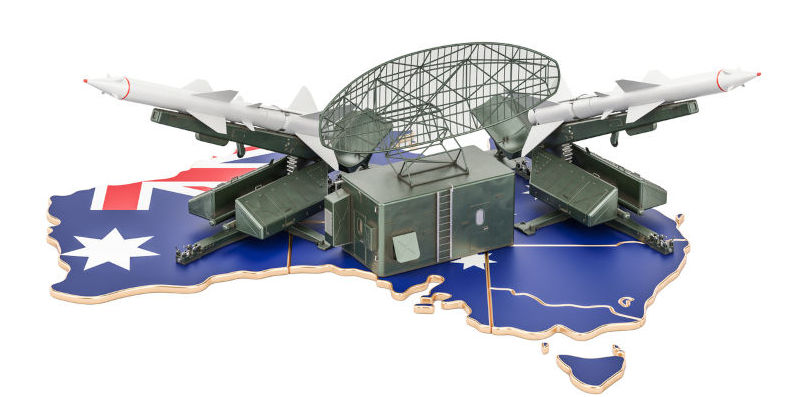Time to split from sugar daddy
April 1, 2025
Last week, I listened to Stuart Rees and Sue Wareham, two regular contributors to P&I, discuss kindness and cruelty in public policy._
_
During the conversation, Stuart raised a crucial point: “Why is national security always defined in terms of warships, jet fighters, tanks, and bombs? Wouldn’t it make more sense to think of security in terms of decent housing, better education, and strong health and welfare systems? Why do politicians always tie security to warfare?” It’s a question worth considering.
In recent years, the ALP and the Coalition have become fixated on the question of defence. They talk incessantly about the threat posed by China (yet ignore US actions toward countries like Canada, Panama, and Greenland). Billions are being spent on AUKUS and expanding military infrastructure. The government seems eager to cozy up to the US, our so-called “enduring” friend. One audience member suggested renaming the Department of Defence to the Department of Offence, given the alarmist rhetoric coming from politicians, particularly Deputy Prime Minister Richard Marles. His military talk only seems to escalate tensions, perhaps even bringing us closer to the very conflict he seeks to avoid: direct confrontation with China.
Call me naïve, but does stationing nuclear-capable B-52 bombers in the Northern Territory, strengthening the Pine Gap intelligence facility, and developing long-range missiles really make us safer? Military leaders and hawkish politicians think so, but Greens Senator David Shoebridge disagrees. He warns that this only makes Australia a bigger part of the global nuclear weapons threat and destabilises the region.
He makes a valid point.
Moreover, developing more long-range weapons could make Australia a bigger target. China’s defence ministry is unlikely to ignore such moves. It seems like a strange approach to national security, especially considering the enormous sums spent on defence. Australia’s commitment to AUKUS could cost anywhere from $268 billion to $368 billion over the next 30 years, including up to five Virginia-class submarines set to arrive around 2032. Chinese underwater drones might well be waiting in anticipation.
There has been widespread criticism, including from former foreign minister Bob Carr, who called the AUKUS deal a “colossal surrender of sovereignty,” and former prime minister Paul Keating, who argued that it doesn’t solve regional security issues.
But just imagine what we could do with all that AUKUS money to improve domestic security and the quality of life for Australians?
Consider these ideas: raise welfare payments for the poorest, eliminate student debt, build more affordable housing, improve mental health and childcare services, boost renewable energy, build climate-resilient communities, support Indigenous communities, and create a high-speed rail network along the eastern seaboard, replacing the sluggish XTP. I’m sure you have your own wish list. The point is, there are many ways to enhance the security of Australian families and communities without spending billions on military expansion.
While reflecting on the chaos unfolding in the US, I stumbled upon a YouTube documentary about Denmark. Watching it felt like a breath of fresh air, offering a stark contrast to the madness of a country controlled by billionaire elites and a sugar-daddy government. Denmark, along with Norway and Finland, are among the happiest countries in the world. They prioritise public services like housing, healthcare, and education, using progressive taxation to benefit society as a whole.
Through AUKUS, Australia is aligning itself with a government that is dismantling social services, impoverishing its citizens, and bullying its opponents. Is this really the alliance we want? Why not look to countries that are genuinely progressive, who seek co-operation rather than confrontation? Perhaps Australia’s dependency on aggressive powers is more deeply ingrained in our national psyche than we’d like to admit.
Stuart is right: true security doesn’t come from the barrel of a gun.


